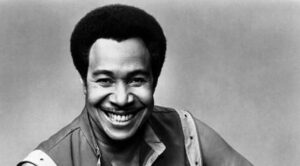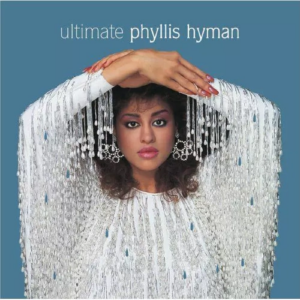Official Biography (courtesy of Alain Clark)
Dutch soul sensation Alain Clark is the kind of superstar who can’t walk around his home city of Amsterdam without being recognised followifng three of the nation’s biggest hit singles of 2008. In a year in which he was a mainstay of the Top 10, Clark progressed from being an unknown support act to Amy Winehouse to becoming an arena-filling star in his own right and collected two of the Netherlands’ most prestigious musical honours in the process.
Yet Clark’s apparent overnight success is the product of almost a decade’s worth of graft and disappointment. Originating from the seaside town of Zandvoort, Clark headed for the bright lights of Los Angeles in the hope of achieving his musical dream. “You’re a guy who’s not from the States and you’ve got to make your point,” he recalls with a wry smile. “Pardon my French, but you don’t want to get screwed around. You’ve got to make sure you know what’s going on.”
Following several meetings with a major label and a successful showcase, it looked like Clark’s dream would become a reality. But such is the way of the music industry that such dreams can ebb away just as they’re coming true. Sadly for Clark, this was a turn of events that would become all too common in the coming years. “If that happens once or twice, you move on and get stronger, but after three, four, five times it can get a bit demoralizing,” he summarises with his inner determination still glowing. “But at the same time I was fortunate enough to realise that if I was behind my piano or my guitar writing a song, that no-one could take that away from me.”
Despite an evident passion for his craft, Clark found himself several years down the road at essentially the same stage that he had arrived at. Back home, he was an accomplished producer and songwriter who had created domestic hits for numerous domestic artists and that provided him with enough financial backing and expertise to go it alone. To give the album – later titled “Live It Out’ and issued by indie label Eight Ball Music – a solid basis, Clark headed back to Los Angeles where he recruited legendary drummer Steve Gadd (“He played on most of my heroes’ albums!”) as well as old friend Kevin Wyatt (Terence Trent D’arby, En Vogue) on bass. The recordings were subsequently completed back in Amsterdam at Clark’s home studio.
“I wanted to make no concessions with this record. I found with productions that I did for other artists that you’re tied to a certain budget; you’re tied to certain ideas that the artist or record company may have. This being my record, I decided to do this just the way I wanted to.” The result is, as he says, “My own retro soul sound based on the Tamla Motown basics at the heart of which are prolific musicians, real songs and no sign of digital trickery.”
That Motown feel is very much in evidence on the album’s first single “This Ain’t Gonna Work’ that announced Clark’s arrival in style as it scurried up to #3 in the charts. The subsequent singles “Father and Friend’ (#2), “Blow Me Away’ (#8) and “Fell In Love’ (#10) cemented Clark’s reputation and forced “Live It Out’ past double Platinum status with near immediacy as well as to a peak position of #2 during an epic stay in the charts. “Live It Out’ received widespread critical acclaim as Clark received a prestigious Rembrandt Prize as well as 2007’s major Megaward. Clark was also the star of national radio station 3FM’s award ceremony, earning Best Single (for “Father and Friend’), Best Male Singer and Best Newcomer.
Inspired by a chance comment by a friend, the album’s biggest hit is “Father and Friend’ , an emotional ballad in which Clark duets with his father Dane – himself a veteran of a covers band playing classics from the likes of Otis Redding, Sam & Dave and James Brown.
“I’m sure my dad didn’t think he’d start a whole new career at sixty-one. He’s not looking to, he still has his job as an engineer for KLM. I bet he didn’t think he’d be playing in front of 35,000 people,” chuckles Clark Jr. And the single’s success proved to be a particularly proud moment for his mother. “It’s her two guys on stage together doing their thing.”
Back as child, Alain Clark had no idea of how who much he was being subconsciously influenced by his father’s work. “I must’ve been four or five years old and my mum has a recording of me saying, “I’m never going to be a singer, I don’t want to do that, I hate it!'” he laughs. “But I was always around the music and thinking back at that time, I’m really happy to have been around it.”
Now, as Clark looks to replicate his homeland success in the UK, that influence continues to be vitally important.
“At times now when I’m in the studio, or on the stage or writing a song and I don’t have any inspiration, I think of my dad’s band. What would they play now? Where would they take it? I vision the separate players and all of a sudden it becomes really easy. It’s a small amount of magic; everyone’s doing their own thing but together you create something that can’t be created individually.” He flashes a beatific grin. “That’s really inspiring to me.”









